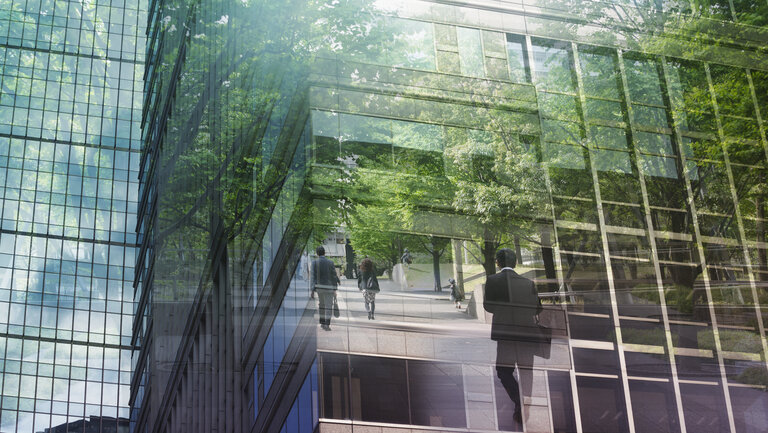Berlin/London, 29 April 2021. As one of the largest contributors to CO2 emissions, the built environment sector is witnessing momentum towards responsible construction practices and advanced technical upgrades to make the sector resilient and future-proof.
British Embassy Berlin, Imperial College London and Drees & Sommer today [29th April 2021] convened the 2nd iteration of the German-British Embassy Talks on Smart and Sustainable Cities, where experts from a wide range of fields came together to discuss the next steps for ecological construction, smart technologies in infrastructure and mobility and their impact on communities. The virtual event was part of an ongoing initiative to develop collaborative opportunities and support the UK and Germany in achieving their zero-emission goals.
With the UK set to host the 26th UN Climate Change Conference of the Parties (COP26) in Glasgow in November 2021, the event worked as a forum where interdisciplinary teams could come together for testing ideas and learnings. The exchange between the two countries will help the nations achieve the UN’s Sustainable Development Goals and position them at the forefront of the green transformation.
“The EU and the UK have set important frameworks for collaborations in science and innovation at an international level. There are significant learnings about sustainable and resilient cities of the future which we can share and explore. Joining forces will take these new approaches forward and make our societies and economies fit for the future,” said Robbie Bulloch, Deputy Head of Mission, British Embassy Berlin.
Drees & Sommer is at the forefront of circular construction, working with the aim of establishing Cradle to Cradle design principles across all industries. The basic principle of circular construction relies on designing buildings linked to a material bank for the future, designed for disassembly, or for deconstruction instead of demolition.
Drees & Sommer UK Managing Director Phil Ratcliffe said: “Following the UK government’s renewed commitment to cut carbon emissions by 78% on 1990 levels by 2035, we need to shift the way we plan and build our cities. We understand the value of mutual learning, that is why this forum is aimed to allow industry leaders from different countries to share best practices so that together we can exceed sustainable targets.”
Transforming the cities of today into smart cities is an important goal to tackle climate change and reduce energy emissions. Smart cities incorporate energy-efficient construction methods, future-focused transport concepts, innovative parking management and comprehensive connectivity to facilitate a new kind of healthier, more sustainable and more digital urban lifestyle.
“The unprecedented challenges of climate emergency and economic uncertainty raise the question of how we can continue providing a high quality of life in a sustainable, cost-effective and fairway. We advocate a Zero Pollution Infrastructure approach that sets development targets within the capacity of natural systems, while improving resilience, safety and sustainability through policy, integrated planning, technology and behaviour change,” said Ana Mijic, Co-director, Centre for Systems Engineering and Innovation, Imperial College London’s Zero Pollution Initiative.
As a climate positive company, Drees & Sommer will continue engaging with stakeholders to realise fruitful outcomes on sustainability and bring the next German-British Embassy Talks to coincide with COP26.
